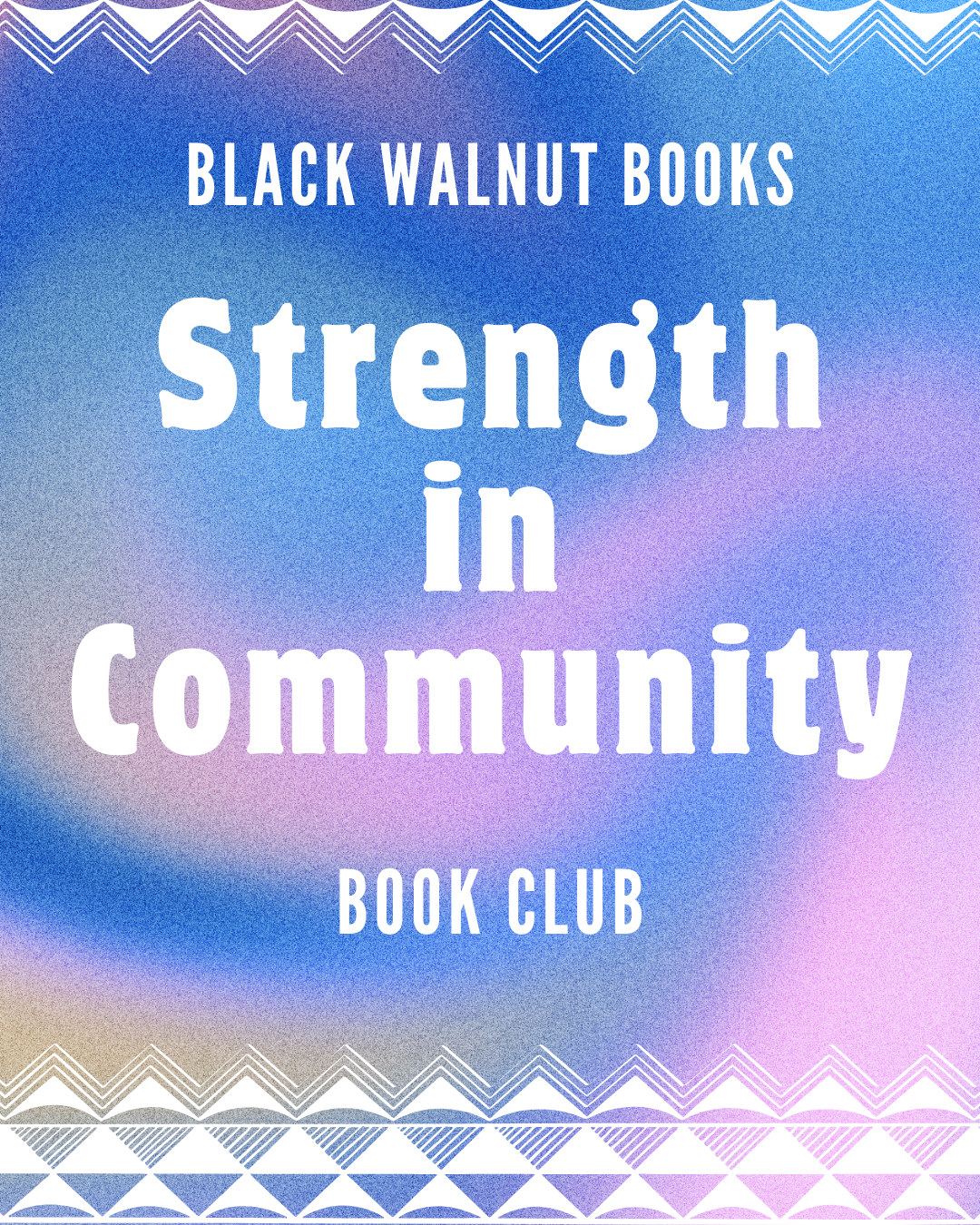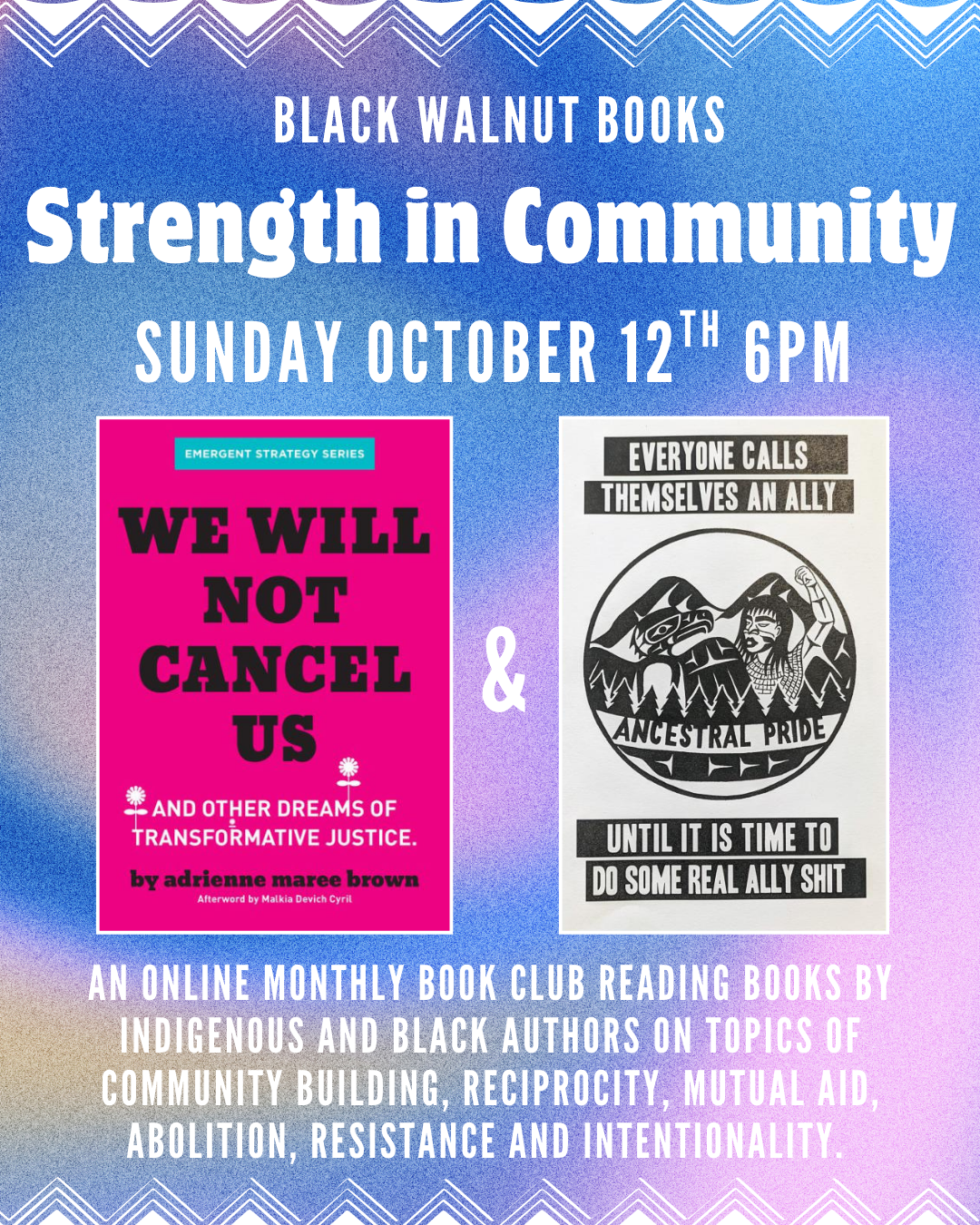

We Will Not Cancel Us & Everyone Calls Themselves an Ally Until It Is Time to Do Some Real Ally Shit : October Strength in Community Book Club Picks
The Strength in Community Book Club meets monthly on Sunday evenings online to discuss books that look to Indigenous and Black authors for topics of community building, reciprocity, mutual aid, abolition, resistance and intentionality.
We Will Not Cancel Us & Everyone Calls Themselves an Ally Until It Is Time to Do Some Real Ally Shit are both the picks for the discussion on 10/12. You can sign up to join the discussion here.
Cancel culture addresses real harm...and sometimes causes more. It's time to think this through. "Cancel" or "call-out" culture is a source of much tension and debate in American society. The infamous "Harper's Letter," signed by public intellectuals of both the left and right, sought to settle the matter and only caused greater division. Originating as a way for marginalized and disempowered people to address harm and take down powerful abusers, often with the help of social media, call outs are seen by some as having gone too far. But what is "too far" when you're talking about imbalances of power and patterns of harm? And what happens when people in social justice movements direct their righteous anger inward at one another? In We Will Not Cancel Us, movement mediator adrienne maree brown reframes the discussion for us, in a way that points to possible paths beyond this impasse. Most critiques of cancel culture come from outside the milieus that produce it, sometimes even from its targets. However, brown explores the question from a Black, queer, and feminist viewpoint that gently asks, how well does this practice serve us? Does it prefigure the sort of world we want to live in? And, if it doesn't, how do we seek accountability and redress for harm in ways that reflect our values?
Not everyone is a warrior. Not everyone wants to be in confrontational situations with the police and governments, or angry people, but most of the people who fall into this category are often pigeonholed as being a bull horn blow hard and march organizer. Creating a culture of resistance and support requires us all to know what our strong suits and talents are and to cultivate them so they benefit the cause in a manner that is respectful and meaningful."
Xhopakelxhit, a member of Ancestral Pride, (some badass, grassroots, indigenous, direct action land defenders from unceded Ahousat territory) made this zine about how to be anti-racist/anti-capitalist white settler ally to people in all kinds of struggles—indigenous and otherwise. Featuring artwork from Gord Hill and Annie Banks, it offers very concrete action ideas and resources that anyone can empower themselves with in the battle for restorative justice and building allies with settlers. 15% of the proceeds will go to supporting Ancestral Pride.
The Strength in Community Book Club meets monthly on Sunday evenings online to discuss books that look to Indigenous and Black authors for topics of community building, reciprocity, mutual aid, abolition, resistance and intentionality.
We Will Not Cancel Us & Everyone Calls Themselves an Ally Until It Is Time to Do Some Real Ally Shit are both the picks for the discussion on 10/12. You can sign up to join the discussion here.
Cancel culture addresses real harm...and sometimes causes more. It's time to think this through. "Cancel" or "call-out" culture is a source of much tension and debate in American society. The infamous "Harper's Letter," signed by public intellectuals of both the left and right, sought to settle the matter and only caused greater division. Originating as a way for marginalized and disempowered people to address harm and take down powerful abusers, often with the help of social media, call outs are seen by some as having gone too far. But what is "too far" when you're talking about imbalances of power and patterns of harm? And what happens when people in social justice movements direct their righteous anger inward at one another? In We Will Not Cancel Us, movement mediator adrienne maree brown reframes the discussion for us, in a way that points to possible paths beyond this impasse. Most critiques of cancel culture come from outside the milieus that produce it, sometimes even from its targets. However, brown explores the question from a Black, queer, and feminist viewpoint that gently asks, how well does this practice serve us? Does it prefigure the sort of world we want to live in? And, if it doesn't, how do we seek accountability and redress for harm in ways that reflect our values?
Not everyone is a warrior. Not everyone wants to be in confrontational situations with the police and governments, or angry people, but most of the people who fall into this category are often pigeonholed as being a bull horn blow hard and march organizer. Creating a culture of resistance and support requires us all to know what our strong suits and talents are and to cultivate them so they benefit the cause in a manner that is respectful and meaningful."
Xhopakelxhit, a member of Ancestral Pride, (some badass, grassroots, indigenous, direct action land defenders from unceded Ahousat territory) made this zine about how to be anti-racist/anti-capitalist white settler ally to people in all kinds of struggles—indigenous and otherwise. Featuring artwork from Gord Hill and Annie Banks, it offers very concrete action ideas and resources that anyone can empower themselves with in the battle for restorative justice and building allies with settlers. 15% of the proceeds will go to supporting Ancestral Pride.